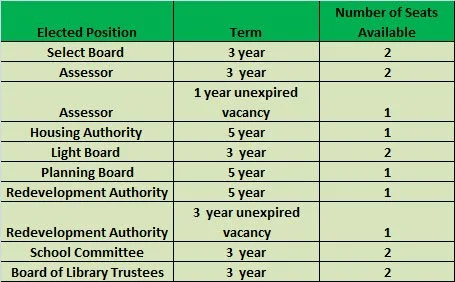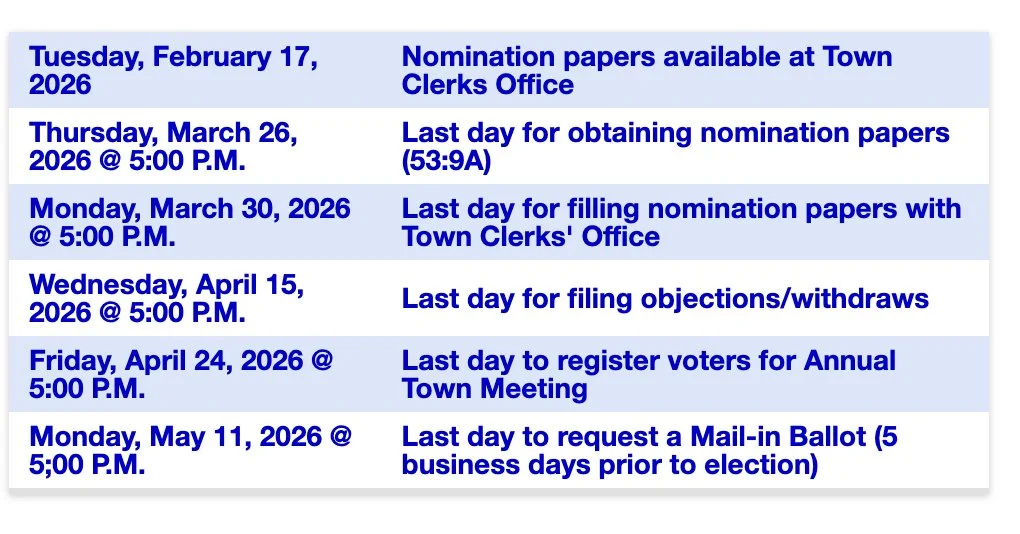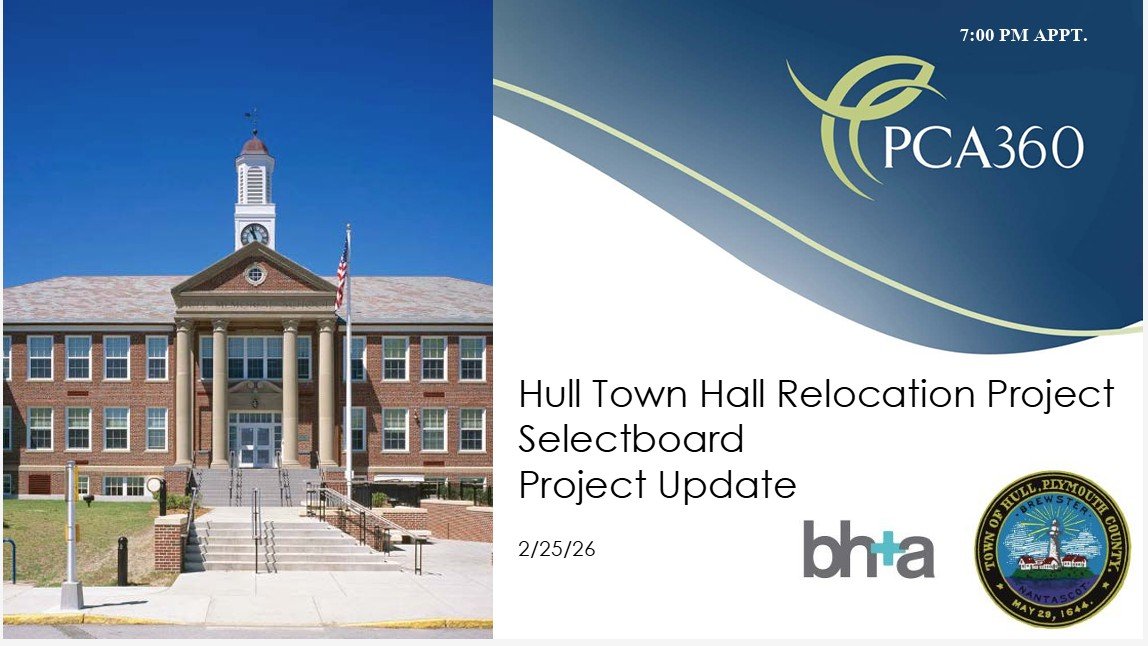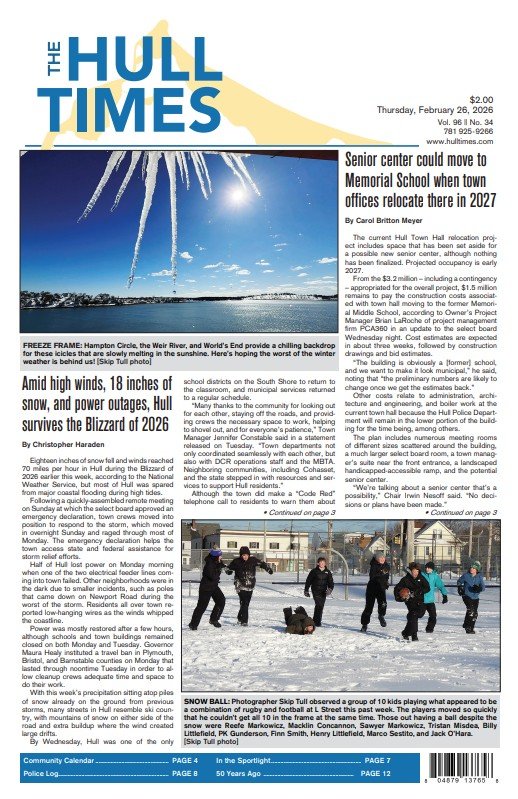By Carol Britton Meyer
The town of Hull is switching to an outside firm – City-Hall Systems (CHS) – to assume the responsibility of the sale and processing of resident parking stickers and visitor passes, upon the recommendation of Police Chief John Dunn and the treasurer’s office. The new system will be available by the end of March.
“In the summer months, it becomes a full-time job to sell and process the issuing of stickers and passes,” Dunn told the select board Wednesday. “It is estimated that the employee cost to the town is in excess of $30,000.”
Town Manager Jennifer Constable, the assistant town manager, the treasurer collector, parking hearing officer, police chief and deputy chief, and town employee Mike Sampson were part of the team that worked with Dunn to recommend changes to the system and related fee increases that will ensure the town’s costs are covered and will help pay for the community service officers who interact with residents and visitors related to parking sticker/visitor pass issues during the summer.
“If the chief is asking for more CSO officers, he should get them, and the funding should come out of the town’s General Fund,” select board member Brian McCarthy, who voted against the fees, said. “If a resident pays an excise tax, their parking sticker should be free.”
Sticker/pass increases approved
The select board approved the following fee increases on a 3-2 vote, with McCarthy and Jerry Taverna voting in opposition:
resident sticker, from $14 to $20;
visitor pass, $14 to $20, with no limit;
and seniors ages 65 and over, from $7 to $10.
The new fees include a $4 CHS charge.
Veterans and handicapped parking stickers are free for the first sticker per residence, with the full fee charged for additional vehicles.
Under this new system, CHS will charge $1 base fee for each sticker and pass entered into the system (by the town of Hull) and a $3 additional fee for each sticker ordered online – with the town ordering and paying for the sticker stock that it will provide to CHS.
Since the sticker program’s inception, the police department issued the permits and passes; the treasurer’s office had that responsibility last year.
With regard to the fees, board member Greg Grey noted that “this system is in place to protect residents’ parking spaces, and [that] comes with a cost.”
This change will eliminate all in-person sales, with all transactions to be completed online. Assistance will be available at the library and senior center for those who do not have online access or have questions.
In total, 6,268 stickers were issued in 2025, and 3,557 visitor passes. The parking stickers are good in town and Hull Redevelopment Authority lots.
“City Hall Systems’ printing costs will total $620 for 4,000 visitor passes, a savings of $692 over last year’s costs, and $3,900 for 7,500 stickers, a savings of $2,297,” Dunn said.
In 2025, online sticker and pass sales totaled $41,307, consisting of 2,134 restricted stickers and 1,052 visitor passes.
In-person sales amounted to $72,547, with 4,134 restricted stickers and 2,505 visitor passes sold, for a total of $113,854.
“In addition, last year we issued over 1,700 tickets that resulted in more than $54,000 in fines,” Dunn noted. “The bulk of these were for restricted parking violations throughout town.”
Residents express concerns
During the lengthy discussion, a number of residents expressed concerns related to neighbors’ visitors parking in front of their homes without passes or with passes that aren’t linked to their individual addresses, which is part of the process.
Susan Short Green asked why the agenda item didn’t indicate there would be a discussion about a change to the current system and a proposed fee increase.
Constable noted that the online packet for the meeting included information about the proposed change and fee increases.
C. Anne Murray, who lives near the Cohasset town line, said the community service officers don’t make it to her part of town, requiring her to call the police about violations that affect her, which she said she resents.
Murray also expressed the opinion that what was once addressed as “a quality of life” issue has turned into “a revenue enhancement program. You’ve created a monster. Let’s hope this new system will be better.”
Chamber of Commerce President Steven Greenberg said he hopes “we can work together” to encourage visitors to use the boat and bus to get to Hull and back and to get the word out that “there won’t be a parking space for you,” so better to use public transportation.
Board member Jason McCann said he thinks the new system “will be more efficient” than earlier ones, involving a “learning curve” in the first year.
In other business at the meeting
In other business at the meeting, James T. Denton and Neil L. Reilly were conditionally offered positions as full-time officers with the Hull Police Department by the select board upon Chief John Dunn’s recommendation, pending successful completion of physicals and the MPTC (Municipal Police Training Committee)-required physical agility test.
Upon successful completion of these steps, Dunn will present the appointed candidates for select board approval to attend the Municipal Police Training Academy as “student officers.”
During select board updates at the end of the meeting, Grey expressed concern about what he called the “animosity” behind recent social media posts related to the “role of the planning board,” which includes site plan review.
Chair Irwin Nesoff shared that concern, saying that some of the posts were “out of hand. If you disagree with someone or have different ideas, do it in a way that doesn’t attack a person if they happen to disagree with you,” he said, noting that social media “frees people to say things they wouldn’t say in person.”
Nesoff further noted that “town employees, elected folks, and committee members are people who devote a lot of time as volunteers for the town and deserve to be thanked for it, not attacked.”




















